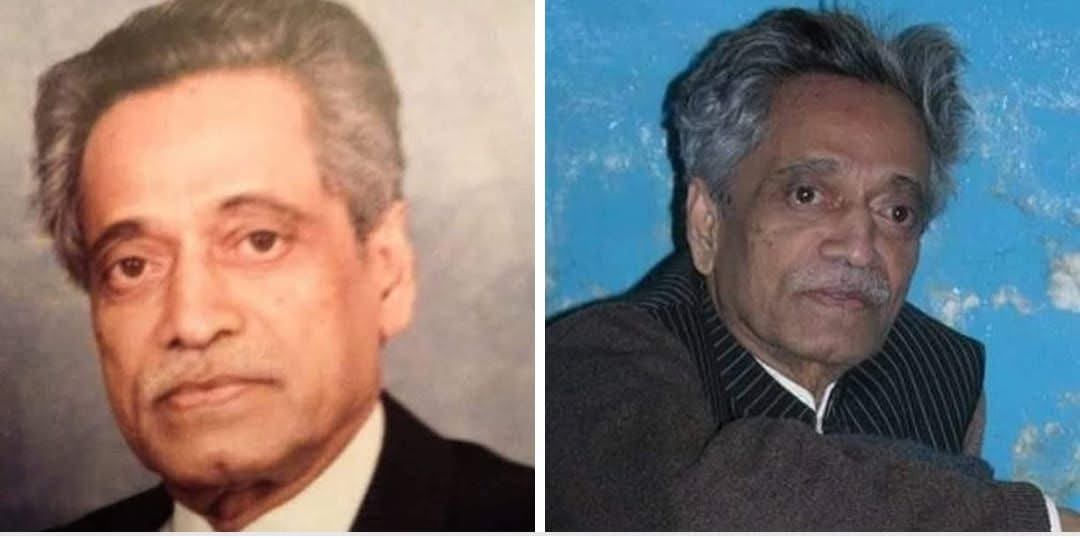By: Raja Zahid Akhtar Khanzada
This phrase was uttered by Pakistan’s former dictator General Zia-ul-Haq during a meeting, addressing the country’s top bureaucrats. But among them, there was one man who did not bow to this threat. Instead, he courageously responded in a way that left a lasting mark on history. Following his bold reply, General Zia summoned him to another room and pressured him to apologize. But he stood firm on his words and refused to apologize. Today, his name is immortalized in history. That brave man was Justice Khawaja Muhammad Ahmad Samdani.
This story is both old and new. The rulers sitting on the throne of power may change, but the game of oppression, fear, and the trade of principles remains the same. Some people sell their conscience in exchange for rewards, while others refuse to compromise on their principles and become the crown jewels of history. History always remembers those who refuse to bow before tyranny, while time’s dust erases those who strangle the truth for personal gain.
On a night in September 1977, when Zulfiqar Ali Bhutto was arrested, his lawyers filed a bail petition in the Lahore High Court. But fear and cowardice loomed over the judges’ bench. No one dared to risk angering General Zia-ul-Haq. Every eye was filled with fear, and every tongue was silent. But amidst this silence, one man rose—Justice Khawaja Muhammad Ahmad Samdani, also known as Justice K.M.A. Samdani. He ruled that Bhutto’s arrest in the murder case was illegal and granted him bail.

This decision was intolerable for Zia-ul-Haq. Pressure was put on Justice Samdani, but he remained steadfast. Three days later, the military re-arrested Bhutto, and Justice Samdani was removed from his position as a senior judge of the Lahore High Court and transferred to the Federal Law Secretariat. In his place, a judge loyal to Zia, Justice Molvi Mushtaq, was appointed—the very judge who played a key role in sentencing Bhutto to the gallows.
Then came the day when Zia-ul-Haq convened a meeting of federal secretaries. Drunk on the intoxication of power, Zia sought to intimidate the bureaucrats and declared:
“Mend your ways, or I will strip your pants!”
The entire hall fell into stunned silence. The bureaucrats glanced at each other helplessly. But then, a voice broke the silence—a fearless challenge that struck a blow to the dictator’s arrogance.
Justice K.M.A. Samdani boldly responded:
“How many of your generals’ pants have you stripped? Strip your generals first, and we will remove ours ourselves!”
This statement shattered Zia-ul-Haq’s pride. The meeting was abruptly adjourned, and a visibly enraged Zia stormed out of the room. But the story didn’t end there. As the secretaries were leaving, Zia’s staff officer, Major General Khalid Mahmud Arif (K.M. Arif), stopped Justice Samdani and informed him that Zia wanted to see him.
When he entered Zia’s chamber, the dictator, still fuming, said:
“You spoke inappropriately during the meeting. Apologize!”
Justice Samdani, standing tall, replied:
“I am willing to apologize, but on one condition—call another meeting, let me repeat my words, and then I will apologize!”
Saying this, he walked out of the room, head held high, conscience clear, and unwavering in his stance.
In 1981, he was offered a return to the judiciary, but with a condition—he had to take an oath under the Provisional Constitutional Order (PCO). This was the moment where many judges bowed down, many compromised, and many sold their pens. But Justice Samdani was not one to trade his principles. He refused to take the PCO oath and honorably resigned from his position.
But history delivered its verdict. General Zia-ul-Haq, the man who trampled on justice and oppressed the truth, perished in a fiery plane crash. His charred remains were buried, along with his false teeth. Today, his name is remembered only as a curse. Meanwhile, Justice K.M.A. Samdani’s name continues to shine in golden letters.
This is history—writing its own judgment, deciding who will be remembered and who will be lost in the dust of time. Those who stood firm on their principles became the crown of history, while those who bowed to power vanished without a trace.
The blood-stained pages of history bear witness that the intoxication of power always tries to suppress the voice of truth. But truth, by its very nature, always prevails—through every storm, every tempest, and every tyranny.
The world has always seen two kinds of people: those who sell their conscience for power, those who kneel in the courts of tyrants, trading their souls for rewards. These people may seem victorious for a moment, but history always remembers them as a stain, their names forever associated with disgrace.
And then there are those who are ready to pay any price for their principles. Those who stand against the storms but never bow. Those who protect the flame of truth, even if it burns their hands. People like Justice K.M.A. Samdani teach us that the voice of conscience is the greatest court of all and that the path of truth may be difficult, but it is the only path to immortality.
This story teaches us that when oppression tries to crush you, when power threatens to auction your soul, do not fear—find the courage to resist. Because in the court of history, justice may be slow, but it always sides with the truth.
Power, wealth, and fame—all are illusions that fade with time. But character is a line that even the fiercest storms cannot erase. Those who compromise on their principles to win ultimately lose everything. But those who hold on to the torch of truth remain immortal, even after death.



